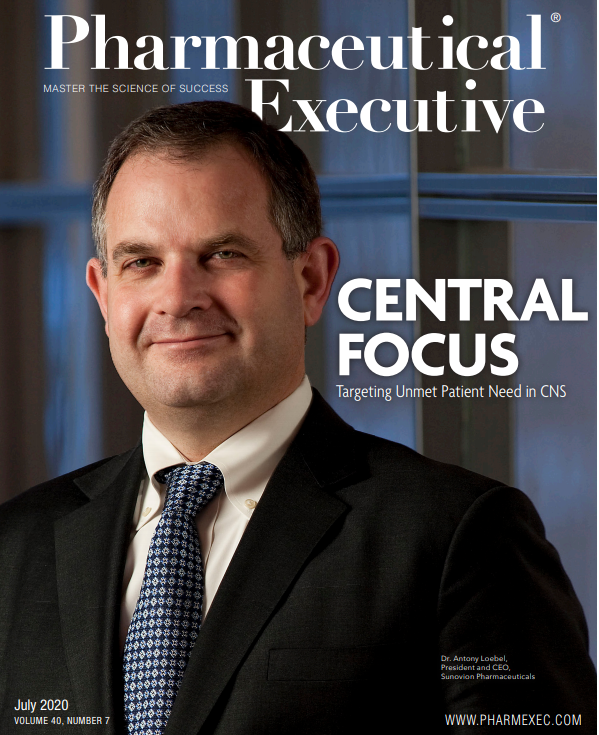- Sustainability
- DE&I
- Pandemic
- Finance
- Legal
- Technology
- Regulatory
- Global
- Pricing
- Strategy
- R&D/Clinical Trials
- Opinion
- Executive Roundtable
- Sales & Marketing
- Executive Profiles
- Leadership
- Market Access
- Patient Engagement
- Supply Chain
- Industry Trends
Almirall and Digital Health: Skin in the Game
Pharmaceutical Executive
Accelerator program seeks to nourish promising innovation.
Julian Upton

Last year, Almirall, the Barcelona-headquartered pharma company focused on skin health, launched a “dermatology digital-health accelerator” with the aim of developing innovative

technology-based solutions to accelerate their go-to-market plans and tackle current and future dermatology challenges. Introducing what the company has named the “Digital Garden,” Almirall called for applications from startups focused on digital innovations in medical dermatology. In November, the company announced the five selected projects: Haut.Al, which develops AI algorithms to recognize skin diseases; UVisio, which informs users about their skin’s UV exposure; and apps from Intrepid Analytics, Derma2go, and AutoDerm. Intrepid Analytics aims to speed up clinical trial recruitment, while Derma20go and AutoDerm provide diagnoses and/or recommendations for treatment based on an image of the patient’s skin. These startups joined the Digital Garden’s nine-month accelerator program in January.
The initiation of the digital health accelerator was part of Chief Digital Officer Francesca Wuttke’s mandate when she joined Almirall in February 2019. “What we are looking to do is to gain access to early-stage technology that we can help to grow,” Wuttke told Pharm Exec. “The technology may or may not be ready for commercial partnership, but it’s about allowing these companies to grow so that they can get the appropriate venture capital funding and be around at such time that we can potentially collaborate with them.” As well as providing funding of up to €50,000, based on agreed milestones, the Digital Garden program provides the startups with mentoring and the potential to collaborate on projects within the company. Almirall’s “board mentors” help the startups to refine their pitch presentation and reach out to key opinion leaders in the field, while “core mentors” dedicate 10% of their time to the startups, “spending about a half a day a week with them in the Digital Garden.”
Digital dermatology
Medical dermatology provides “a great opportunity to pair with digital solutions and services simply because of how visual dermatology can be,” says Wuttke. “We can use AI for image recognition or for helping physicians triage their patients. Also, teledermatology can increase access to dermatologists and speed the time to diagnosis and treatment.” In the diagnosis of cancer-causing or pre-cancerous skin lesions such as actinic keratosis, “what a dermatologist did before can now be done by a family doctor with specific training and an app,” adds Wuttke. Almirall’s AKASI Calculator App, for example-designed in collaboration with the authors of the innovative AKASI (Actinic Keratosis Area and Severity Index) scoring system-helps healthcare professionals to manage the disease evolution, offering them an easy way to assess the severity of the condition.
However, notes Wuttke, “it isn’t just a matter of treating patients’ skin.” As with many chronic diseases, there are a number of comorbidities associated with skin diseases such as severe atopic dermatitis or severe psoriasis. Wuttke hopes that these new technologies-combined with, for example, digital therapeutics for cognitive behavioral therapy-can eventually lead to a more holistic approach to treating patients, addressing issues such as obesity, diabetes, and mental health concerns.
Digital mindset
The Digital Garden is part of Almirall’s “changing narrative” around digital technology. Wuttke’s role as chief digital officer reflects the company’s commitment to an enterprise-wide digital transformation, and that includes a wholesale cultural change. “That’s everything from back-office process automation-whether it’s finance, or HR, AI-initiated drug discovery platforms-to helping our commercial colleagues with launches or with products already in the market,” she explains. “The idea is really to facilitate the transformation across all disciplines within Almirall with a view to imbuing a digital and data mindset in all of our employees.”
For this, “there’s a tremendous amount of receptivity in the organization,” adds Wuttke. “The teams are correctly seeing digital as another way to innovate. Innovation is at the core of the company’s DNA, so perhaps that’s why the uptake has been swift. It’s really just about trying to add as much value as we can across the company and to patients and physicians.”
Julian Upton is Pharm Exec’s European and Online Editor. He can be reached at jupton@mjhlifesciences.com

The Impact of Artificial Intelligence on the Creation of Medicines
October 24th 2024Najat Khan, chief R&D officer, chief commercial officer, Recursion, and Fred Hassan, director, Warburg Pincus, discuss how artificial intelligence can help reduce healthcare costs at the 20th Annual Young & Partners Pharmaceutical Executive Summit held at the Yale Club of New York.
Plan Ahead: Mastering Your AI Budget for 2025 Success
October 9th 2024Generative AI is just one part of the artificial intelligence and machine learning that is being used by life science organizations, emerging as a major area of interest and an area in which costs and ROI are still largely unknown.
